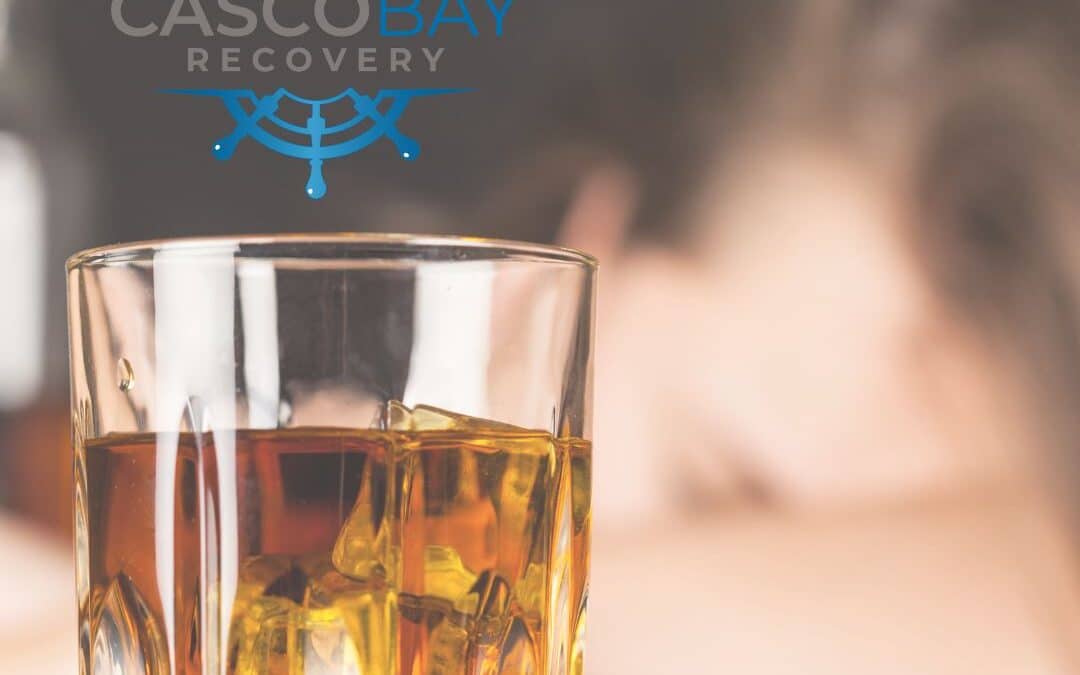Overview of Alcohol Withdrawal
Alcohol withdrawal occurs when someone who regularly consumes alcohol suddenly stops or significantly reduces their intake. This process triggers a complex series of physical and psychological responses as the body adjusts to functioning without alcohol.
The severity of withdrawal symptoms varies based on several factors:
- Length of alcohol use
- Average daily consumption
- Individual health conditions
- Previous withdrawal experiences
Understanding the timeline of alcohol withdrawal is crucial for a successful recovery journey. Symptoms typically begin within 6-24 hours after the last drink, peak around 72 hours, and can persist for several weeks.
Key phases of alcohol withdrawal include:
- Initial Phase (6-12 hours): Mild symptoms emerge
- Peak Phase (24-72 hours): Most intense symptoms
- Subsiding Phase (5-7 days): Symptoms gradually decrease
- Post-Acute Phase (weeks to months): Psychological symptoms persist
Knowing what to expect during each phase helps you prepare mentally and physically for the challenges ahead. This knowledge also enables you to recognize warning signs that require immediate medical attention, ensuring a safer withdrawal process.
A medically supervised detox program provides the safest environment for alcohol withdrawal, offering professional support and medical intervention when needed. Such programs can be found in various forms, including inpatient rehab and outpatient alcohol treatment, each tailored to meet individual needs.
Symptoms of Alcohol Withdrawal
Alcohol withdrawal symptoms can range from mild discomfort to severe, life-threatening conditions. Your body’s response to stopping alcohol consumption typically shows up as physical and psychological symptoms.
Common Physical Symptoms:
- Headaches and dizziness
- Excessive sweating
- Tremors in hands and body
- Heart palpitations
- Nausea and vomiting
- Increased blood pressure
- Muscle tension and aches
Psychological Manifestations:
- Intense anxiety
- Severe mood swings
- Depression
- Insomnia
- Difficulty concentrating
- Irritability
- Confusion
The severity of withdrawal symptoms depends on factors like:
- Duration of alcohol use
- Amount typically consumed
- Individual health conditions
- Previous withdrawal experiences
Mild symptoms might feel similar to a hangover, while moderate symptoms can significantly impact daily activities. Severe withdrawal presents dangerous complications, including seizures and hallucinations.
Your withdrawal severity typically aligns with your drinking patterns – heavy, long-term alcohol use increases the risk of experiencing intense symptoms. These symptoms can affect your cardiovascular system, mental health, and cognitive function, making professional medical supervision essential for a safe recovery process.
Understanding Delirium Tremens (DTs) and Its Treatments
Delirium tremens (DTs) is the most severe form of alcohol withdrawal syndrome. This life-threatening condition usually occurs 48-72 hours after the last drink and needs immediate medical attention.
Signs and Symptoms of DTs
The key signs and symptoms of DTs include:
- Severe mental confusion and disorientation
- Visual, auditory, or tactile hallucinations
- Intense tremors throughout the body
- Sudden and severe changes in mental function
- Extreme agitation or restlessness
- Deep sleep followed by extreme alertness
Who is at Risk for Developing DTs?
Certain factors can increase the likelihood of developing DTs:
- Long-term heavy alcohol use (more than 8 years)
- Previous episodes of DTs or withdrawal seizures
- Advanced age (over 40)
- Recent head trauma or infection
- Co-existing medical conditions
- Poor nutritional status
How are DTs Treated?
Treatment for DTs requires hospitalization and close monitoring. Medical professionals use a combination of:
- Benzodiazepines to control seizures and agitation
- IV fluids to prevent dehydration
- Antipsychotic medications to manage hallucinations
- Vitamin B1 (thiamine) supplementation
- Heart rate and blood pressure monitoring
In some cases, treatment of alcohol withdrawal syndrome may also be necessary as part of the overall management plan.
Why is Early Recognition Important?
Early recognition and treatment of DTs significantly improve outcomes. The mortality rate for untreated DTs can reach 37%, but with proper medical care, this rate drops to less than 5%.
Emergency Treatment for Severe Alcohol Withdrawal Symptoms
Medical supervision is crucial during severe alcohol withdrawal. Our medical team provides 24/7 monitoring of vital signs, including:
- Blood pressure
- Heart rate
- Body temperature
- Oxygen levels
- Hydration status
Medication Management
Benzodiazepines serve as the primary medication for treating severe withdrawal symptoms. These medications help:
- Reduce anxiety and agitation
- Prevent seizures
- Decrease risk of complications
- Manage sleep disturbances
Common benzodiazepines prescribed include:
- Diazepam (Valium)
- Lorazepam (Ativan)
- Chlordiazepoxide (Librium)
Additional Treatment Protocols
Our emergency treatment protocol includes:
- IV fluid therapy for dehydration
- Vitamin B1 (thiamine) supplementation
- Electrolyte replacement
- Anti-seizure medications when needed
- Beta-blockers for cardiovascular symptoms
The dosage and duration of medication are carefully tailored to each patient’s specific needs, considering factors such as:
- Severity of symptoms
- Medical history
- Previous withdrawal experiences
- Current physical condition
Medical supervision allows for immediate intervention if complications arise, ensuring the safest possible withdrawal process.
Duration and Persistence of Psychological Symptoms in Alcohol Withdrawal Recovery
The timeline of alcohol withdrawal unfolds in distinct stages, each marked by specific psychological challenges:
6-12 Hours After Last Drink
- Mild anxiety
- Sleep disturbances
- Racing thoughts
12-48 Hours
- Increased irritability
- Mood swings
- Difficulty concentrating
48-72 Hours
- Peak psychological symptoms
- Intense anxiety
- Depression
- Confusion
The acute phase of withdrawal typically resolves within 5-7 days, but psychological symptoms can persist for weeks or months. This extended period, known as Post-Acute Withdrawal Syndrome (PAWS), includes:
- Persistent anxiety
- Mood fluctuations
- Memory problems
- Sleep irregularities
- Decreased energy
These lingering psychological effects can significantly impact recovery success rates. Research shows that individuals who receive ongoing support during PAWS are more likely to maintain long-term sobriety. The brain requires time to restore its natural chemical balance, and healing occurs gradually.
Professional support becomes crucial during this phase as psychological symptoms can trigger relapse. Treatment programs that address both immediate withdrawal symptoms and long-term psychological effects provide the most comprehensive path to recovery.
Risks Associated with Severe Alcohol Withdrawal and the Need for Professional Help
Severe alcohol withdrawal carries significant health risks that can become life-threatening without proper medical supervision. The most serious complications include:
- Seizures: These can occur suddenly and without warning
- Heart complications: Including irregular heartbeat and sudden blood pressure changes
- Severe dehydration: Leading to electrolyte imbalances
- Hallucinations: Both visual and auditory disturbances
- Aspiration pneumonia: Due to decreased gag reflex
The risk factors that increase the likelihood of severe withdrawal symptoms include:
- Long-term heavy alcohol use
- Previous withdrawal experiences
- Co-existing medical conditions
- Advanced age
- Poor nutritional status
Professional medical supervision is essential during alcohol withdrawal. At Casco Bay Recovery, we provide comprehensive medical support throughout the withdrawal process, including:
- 24/7 medical monitoring
- Personalized treatment plans
- Medication-assisted treatment which combines medications with behavioral therapy for better outcomes
- Emergency medical intervention when needed
- Psychological support
Getting Help at Casco Bay Recovery
You don’t have to face alcohol withdrawal alone. Our experienced medical team understands the complexities of alcohol withdrawal and provides the support needed to ensure a safe recovery process.
We offer:
- Initial Assessment: To determine your specific risk factors
- Customized Treatment Plans: Based on your individual needs
- Medical Supervision: Throughout the withdrawal timeline
- Aftercare Planning: For sustained recovery success
If you’re ready to start your recovery journey, reach out to our team today. We’re here to help you navigate the withdrawal process safely and begin your path to lasting sobriety. Contact us to learn more about our comprehensive alcohol withdrawal treatment programs.








